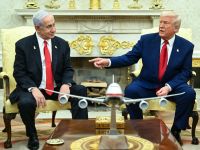An International Monetary Fund (IMF) mission led by Taline Koranchelian visited the United Arab Emirates during February 27-March 7, 2011. The mission met with Minister of State for Financial Affairs Obaid Humaid Al Tayer, Minister of Economy Sultan Bin Saeed Al Mansoori, Governor of the Central Bank of United Arab Emirates Sultan Bin Nasser Al Suwaidi, other senior government officials, as well as representatives from the business and financial community.
At the conclusion of the visit, Ms. Koranchelian issued the following statement today in Abu Dhabi: “The economic recovery is gaining strength, supported by a favorable global environment but subject to increased regional uncertainty. While overall growth is expected to remain unchanged in 2011 at 3¼ percent, non-oil GDP growth is projected to accelerate from 2 percent in 2010 to 3¼ percent in 2011, reflecting strong tourism, logistics, and trade in Dubai; and large public investment spending in Abu Dhabi, including through Government-Related Enterprises (GREs). Despite higher international food prices, CPI inflation is expected to remain moderate at 4 percent, as rents continue to decline. Higher oil prices are contributing to a marked improvement in the fiscal position and balance of payments.
“Risks to the recovery remain, including from possible economic spillovers of regional events. For example, the current re-pricing of political and sovereign risks in the region could lead to more challenging market conditions, which may put pressure on the corporate sector, including the GREs. The excess supply of property in Dubai and the uncertainty regarding its size will continue to weigh on growth.
“Against this background, macroeconomic policies in 2011 should be geared towards supporting the recovery, and adjusting to economic spillovers from the unfolding events in the region. To this end, the government should avoid contracting the fiscal stance to ease economic recovery, while the central bank’s monetary stance should remain accommodative.
“The government’s plan to upgrade the infrastructure in the northern Emirates is a step towards more inclusive economic development. Replacing the current subsidies on water and electricity with explicit cash transfers to lower-income households should also be considered. The government intends to launch active labor-market policies to create jobs for nationals. Given the concentration of unemployment in the northern Emirates, launching these programs in these regions, while also relocating some of the government agencies/entities in the north, would be important."







